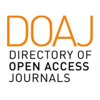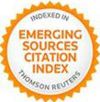Abstract
This paper explores the pedagogical implications of the growing understanding of the human being as a superorganism, a complex ecosystem in continuous interaction with the environment. Based on the scientific evidence on the role of the microbiome in relation to physical and mental health, an epistemological reflection on the nature of pedagogical knowledge is proposed: a "biotic pedagogy" is proposed, attentive to the interactions between body, mind and environment.
Keywords
Full Text:
PDFDOI: http://dx.doi.org/10.2423/i22394303v14Sp31
References
Boeri, S. (2014). A vertical forest: Instruction manual for the prototype of a sustainable residential building. Florentia Village.
Boeri, S. (2015). Biomilano: Glossary for an urban revolution. Corraini Edizioni.
Bottaccioli, F., & Bottaccioli, A. G. (2017). Psiconeuroendocrinoimmunologia e scienza della cura integrata. Il manuale. Milano: Edra.
Campagnolo, G. (1999). La pedagogia del positivismo. Brescia: La Scuola.
Carabotti, M., Scirocco, A., Maselli, M. A., & Severi, C. (2015). The gut-brain axis: interactions between enteric microbiota, central and enteric nervous systems. Annals of gastroenterology, 28(2), 203.
Colazzo, S. (2009), La prospettiva bio-pedagogica: una nuova frontiera della ricerca educativa. Riabilitazione Neurocognitiva, novembre(2). 109-122.
Colomina, B., & Wigley, M. (2016). Are We Human? Notes on an Archaeology of Design. Lars Müller Publishers.
Cryan, J.F., & Mahony, S.M. (2011). The microbiome gut-brain axis: from bowel to behavior. Neurogastroenterology & Motility, 23(3), 187-192.
Cryan, J.F., & Dinan, T.G. (2012). Mind-altering microorganism: the impact of the gut microbiota on brain and behaviour. Nature reviews neuroscience, 13(10), 701-712.
Cryan,J.F., O’Riordan,K.J., Cowan, C.S., Sandhu,K.V. … & Dinan, T.G. (2019). The microbiota-gut-brain axis. Physiological reviews, 99(4), 1877-2013.
Crutzen, P. J., & Stoermer, E. F. (2000). The “Anthropocene”. Global Change Newsletter, 41, 17-18.
Davies, J., & Davies, D. (2010). Origins and evolution of antibiotic resistance. Microbiology and Molecular Biology Reviews, 74(3), 417-433.
Dorit, R.L. (2014). The superorganism concept and human healt. Trends in Parasitology, 30(8), 374-381.
Esposito. R. (2020). Immunitas. Protezione e negazione della vita. Torino: Einaudi.
Forty, A. (2000). Words and buildings: A vocabulary of modern architecture. Thames & Hudson.
Frauenfelder, E., Santoianni, F., & Striano, M. (2002). Introduzione alle scienze bioeducative. Roma-Bari: Laterza.
Frauenfelder, E. (2016). Una dinamica dialogica per la nascita delle Scienze bioeducative. Studi sulla Formazione/Open Journal of Education, 19(1), 11-22.
Gershon, M. D. (1998). The second brain: The scientific basis of gut instinct and a groundbreaking new understanding of nervous disorders of the stomach and intestine. New York: HarperCollins.
Guillemot, A., Colomb, V., & Vergères, G. (2019). The gut microbiota as a new player in the pathogenesis of psychiatric disorders. Current opinion in pharmacology, 48, 1-6.
Helander, H. F., & Fändriks, L. (2014). Surface area of the digestive tract—revisited. Scandinavian Journal of Gastroenterology, 49(6), 681-689.
Huang, R., Wang, K., & Hu, J. (2016). Effect of probiotics on depression: A systematic review and meta-analysis of randomized controlled trials. Nutrients, 8(9), 533.
Lo Sapio, G. (2012). Giovanni Bollea, fondatore della neuropsichiatria infantile italiana: scienziato e maestro di vita. Roma: Armando Editore.
Mayer, E. A., Knight, R., Mazmanian, S. K., Cryan, J. F., & Tillisch, K. (2014). Gut microbes and the brain: paradigm shift in neuroscience. Journal of Neuroscience, 34(46), 15490-15496.
Manfreda A. (2023). Mappatura dei bisogni. Torino: Harmattan Italia.
Mariani, M. (2011). La pedagogia italiana tra Ottocento e Novecento. Brescia: La Scuola.
Morin, E. (2003). Introduzione al pensiero complesso. Gli strumenti per affrontare la sfida della complessità. It.transl. M Corbani. Milano: Sperling & Kupfer.
Mowat, A. M. (2003). Anatomical basis of tolerance and immunity to intestinal antigens. Nature Reviews Immunology, 3(4), 331-341.
Varela, F. J., Thompson, E., & Rosch, E. (1991). The embodied mind: Cognitive science and human experience. Cambridge, MA: MIT Press.
Varela, F. J. (1996). Neurophenomenology: A methodological remedy for the hard problem. Journal of consciousness studies, 3(4), 330-349.
Von Foerster, H. (1970). Thoughts and notes on cognition. In P. Garvin (Ed.), Cognition: A multiple view (pp. 25-48). New York: Spartan Books.
Von Foerster, H. (2003). Understanding understanding: Essays on cybernetics and cognition. New York: Springer.
Article Metrics
Metrics powered by PLOS ALM
Refbacks
- There are currently no refbacks.
Copyright (c) 2024 Salvatore Colazzo

This work is licensed under a Creative Commons Attribution-NonCommercial-NoDerivatives 4.0 International License.
SCIRES-IT, e-ISSN 2239-4303
Journal founded by Virginia Valzano





